Even after all the discoveries we've made about the mysterious French psychic Maria Duval, there's only one way to end this hunt. We need to solve the mystery of the woman herself.
Was she really hired to be the face of this massive mail scheme as we've been told? If so, how much money has she gotten from it? Is she even still involved?
New to the investigation? Read it from the beginning
We've been consumed for months by our search for Duval, who is the face and name of a more than $200 million mail fraud scheme. Led by a shadowy network of international businessmen, the scheme has gone on for decades across the globe and its perpetrators have continued to evade authorities.
We are determined to find this woman.
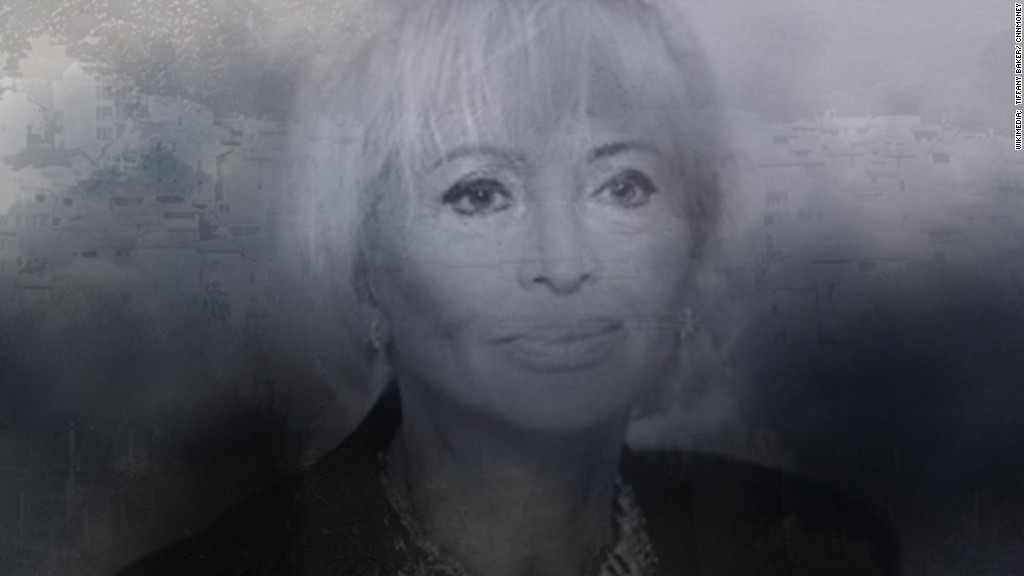
A call to the town hall of Callas, the small French town where she has been reported to live, provided us with a pivotal breakthrough.
Initially, we weren't sure if Duval was even a real person, but the woman who answered the phone said she had spoken to Duval that week. Then she gave us two new clues: a phone number and an address.
Convinced that pursuing these new leads would be our best shot of finally getting answers to our questions, we convinced our editors that we needed to go to this 1,900-person town in the South of France.
Before we left, we made one last round of calls to anyone we thought might have information about this elusive woman -- this time, with the help of a French-speaking colleague.
The former mayor of Callas, Françoise Barre, had the most information to share. She just happened to have been Duval's personal secretary for a decade. And she gave us some personal details about the psychic -- most of which matched what we had read online.
Get updates on this and future investigations by signing up here
But there was one key piece of information that we had wrong.
While she said that Duval's real first name is indeed Maria Carolina, her last name is Gamba (not Gambia like we had seen on Wikipedia and other online postings). This new spelling led us to a whole new trove of information when we searched for it online -- including business filings that showed Duval herself had been the sole shareholder of a Swiss firm named Astroforce. This was one of many versions of the international business, which was key to the Duval mailing operations.
These filings revealed that Duval had received nearly $200,000 from the liquidation of this company in 2008 -- the first concrete evidence that she had been directly involved (and received money from) the mailing operation. The filings also confirmed that she was born in Milan but is now a French citizen and that she is 78 years old.
Barre confirmed that Duval still lives in Callas, but that she doesn't see her much anymore, and that she is very private. She also said that Duval no longer gives psychic consultations, and that her health has been deteriorating.
Oddly enough, we had heard about her reclusive nature from one of the psychics with whom we had previously spoken. Medium Patty Payne, from New York, said she had never met Duval but that she had a firm psychic reading on her.
"When I touch base with her energy, I see an older woman who lives a very quiet life," Payne said. "It's almost like she just retired into this really quiet life and really wants to be left alone."
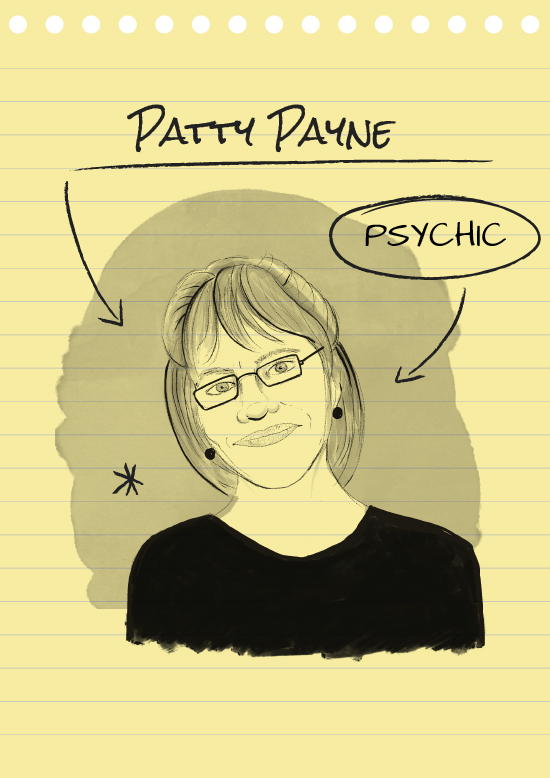
She said that Duval's likeness has been co-opted by scammers and that she has used up much of her energy trying to clear her name. While a colorful theory, it came from a psychic so we were skeptical at best.
Payne even said she could see the home where Duval is currently holed up: a two-story white building in the middle of the French countryside with a slate roof.
With this vision in our minds, we began our trek to Callas.
Our search begins
After more than a day of traveling and driving through the winding, treacherous roads of southern France, we made it to the small hillside town.

We started our search in the dusty archives of the local newspaper Nice-Matin. There, we found decades-old articles that showed Duval really had been famous for finding missing people -- long before a letter was ever sent out in her name.
One article from 1977 had a photo of her as a short-haired brunette who had located a missing man after seeing only his photograph. Another called her a "good witch" and said she had returned to rural Callas -- now with her signature blonde hair -- in the 90s because of her love of animals. The chatty archivist told us that Duval also used to give horoscopes on various radio shows. He said he believed in her powers but hadn't heard much about her lately.
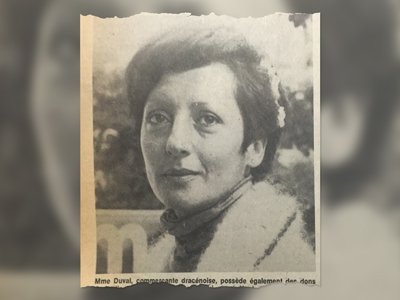
So we headed to the center of town to try to find someone who had.
"Dame Jeanne," the owner of the town's only wine shop, knew who Duval was right away. "She is the psychic that no one ever sees," she said in French, noting that she had been in business for many years and had never seen Duval in her store.
One local man at the town's bar and tobacco shop told us he had seen Duval around town but didn't know much about her either. And his friend, an older Italian man, said he had installed her swimming pool.
A pot of jelly?
We then stopped in at the tiny town hall, tucked away at the top of a narrow, cobblestone street.
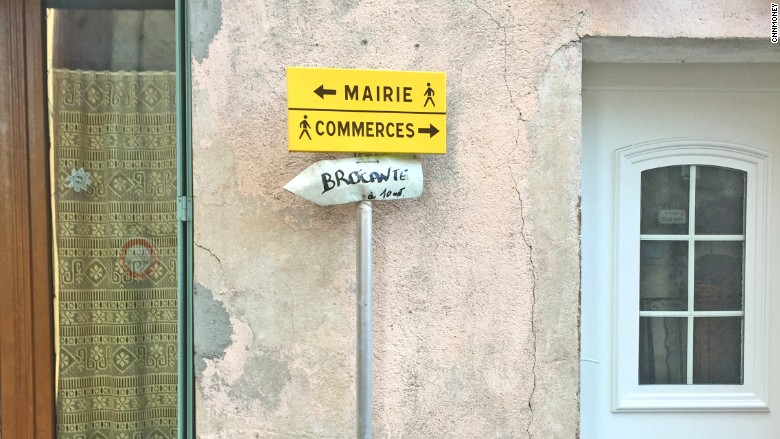
When we asked the lady at the front desk about Duval, she said she had actually worked for her -- more than 20 years ago, as an intern.
What kind of psychic has an intern? Yet another bizarre Duval connection.
She wouldn't go into detail about what she did for Duval, but explained that she worked at her house and had never been aware of any complaints against her.
When we asked about the last time she had seen the psychic, she said Duval had actually come by town hall around the holidays to pick up a pot of jelly.
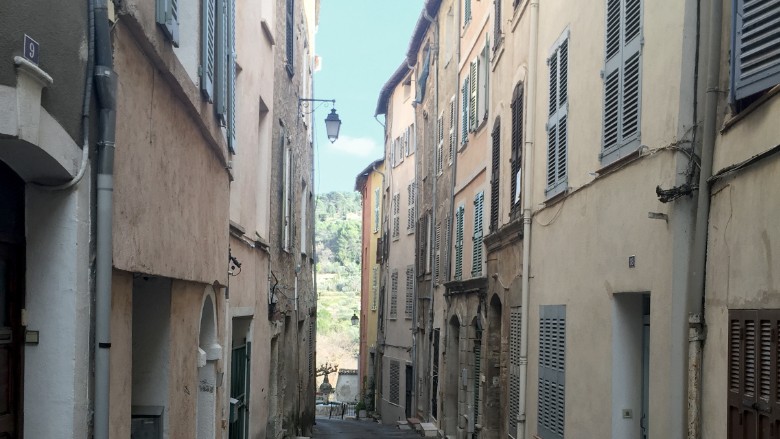
Thinking she may have lost something in translation, our interpreter asked if she was understanding correctly.
The woman explained that as part of a senior citizen program, every resident over the age of 60 is given a pot of "coulis" (a pureed fruit or vegetable sauce similar to jelly) at the end of the year.
While all these stories put an end to any of our lingering suspicions that Duval was a work of fiction (as many investigators have suspected), they still didn't answer the questions we had come to resolve.

So we headed to her house.
The gate opens...
After countless wrong turns, driving for miles in the wrong direction, and knocking on the wrong door entirely, we finally made it to the right address.
The property, which ended up being about 10 minutes from the center of town, was nice. (According to the filings we found, the property was valued at around 762,000 euros years ago, though the exact date of the appraisal is unknown). But it wasn't the sprawling, multimillion dollar villa we expected.
And when we saw the actual house, we couldn't help but laugh. It was two stories and white and might have even had a slate roof, fitting the description psychic Patty Payne had given us.
Email us with your stories, theories and feedback
It also looked like the house of someone who didn't want to be disturbed.
We parked across the street and walked over to a massive white concrete wall with a gate that surrounded the property. As we got closer, we noticed signs warning of 24-hour surveillance, and cameras looking down on us -- along with two concrete eagles perched atop each side of the gate. Above and below the buzzer were signs saying "Beware of dog" in French, and someone had used a marker to change the word on one sign from "Dog" to "Dogs."
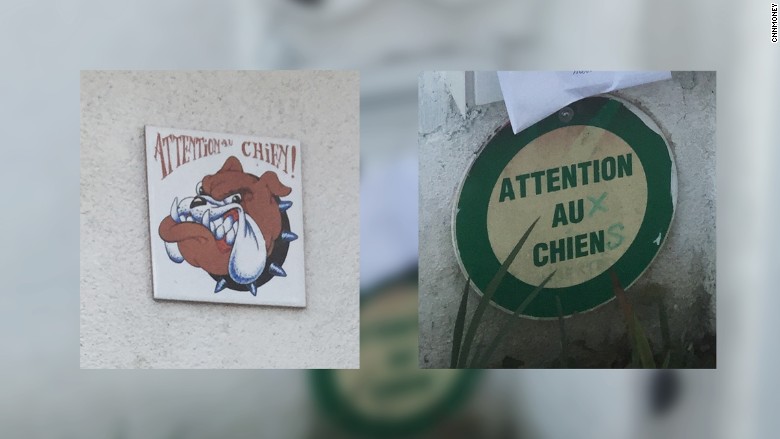
Uneasy, we pushed the buzzer.
At first, there was silence. So we waited a minute and buzzed again. And again.
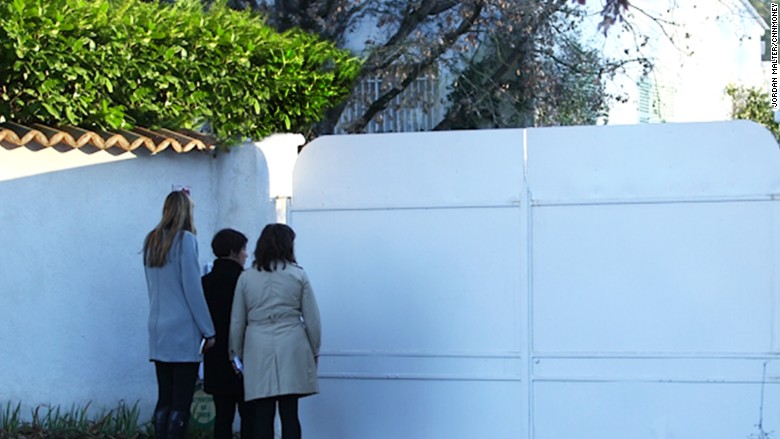
Suddenly, the gate began to creep open.
But just as abruptly as it opened, it began to reverse course -- closing with a clang amid the sound of angry, barking dogs.
Before the gate closed, we got a quick glimpse of a woman on the other side of it. And it wasn't Duval.
Talking through the gate, the woman said she worked for Duval and asked us who we were and what we wanted. She confirmed that this was indeed the psychic's home. But when we told her we were journalists and wanted to speak with her, the woman told us we were out of luck: Maria Duval was in Rome for the week.
As we spoke, a large, brown snout that appeared to belong to a Rottweiler came out from under the spikes of a side gate. The dog looked straight at us with big, dark eyes that made it clear we weren't welcome there.
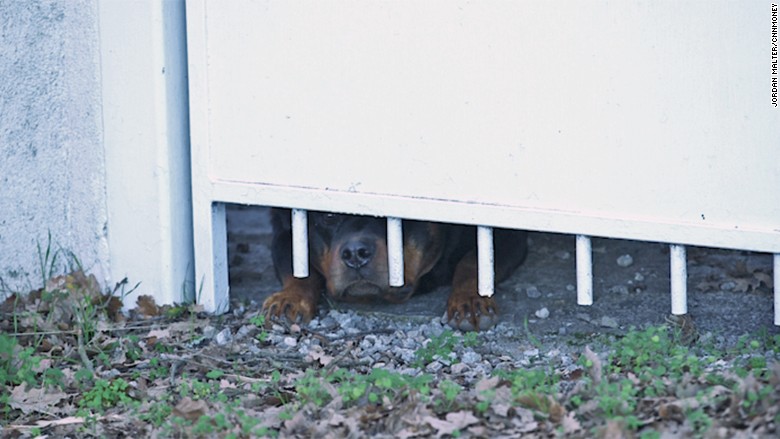
The woman told us she couldn't help us, and to leave a note for Duval in the mailbox near the gate. And as soon as we asked her for her name, her feet silently disappeared from under the gate.
We called after her with no response. She was gone. All that was left was the growling dog.
Who was this woman? Was Duval really vacationing in Rome?
We wrote a letter to Duval, and placed it in the small white mailbox. We then spoke to neighbors, including an elderly man who talked with us while hanging out the window. While her neighbors all confirmed she had lived there for many years, they knew very little about her.
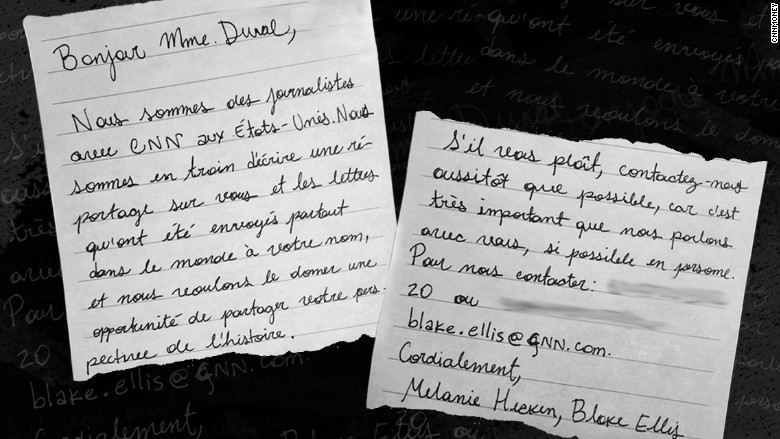
We returned to her house the next day. Within a few minutes, the gate opened and a large white van pulled out. We frantically flagged down the driver. He told us that he was Duval's gardener and that he had also heard she was in Rome.
Digging for clues
With still no word from Duval herself, we turned back to the pile of documents we had brought along on our trip to see if we could find any last clues.
There, we saw one more name listed in a filing related to Duval's estate that we hadn't previously noticed: Marie-Francoise Gamba. Thinking this could possibly be a relative of Duval, we called the first phone number we found listed under her name.
While we were expecting another dead end, an elderly-sounding woman picked up the phone and told us she was Duval's sister.
As our colleague spoke with her in French, we waited anxiously -- wishing we could understand what this woman was saying.
And what she told us turned out to be another small breakthrough. She said she talks to her sister almost every day, and when we explained that the U.S. government had filed a lawsuit against Duval (and others) alleging mail fraud, she seemed shocked. After hearing a description of the letters and the money they ask for, she herself called it an "escro" (short for "escroquerie"), a French word for scam.
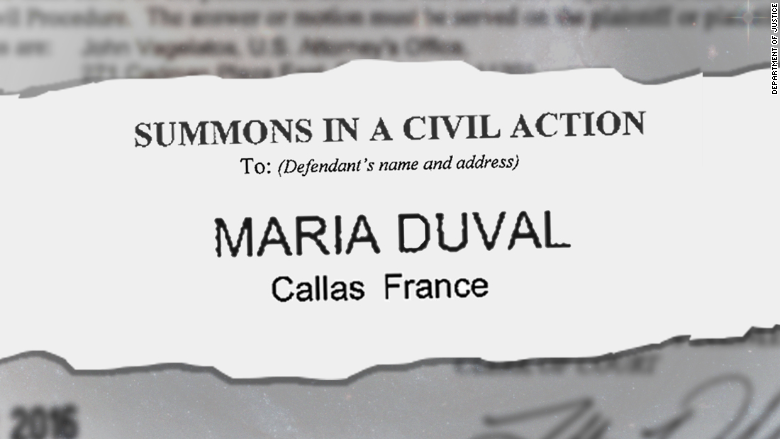
She had a possible explanation that we hadn't heard before, though: She said Duval had sold the rights to her name to a Swiss company many years ago, and that her sister didn't have anything to do with what happened afterward. She also repeated what others had told us, saying Duval's health had been declining, so she would be surprised if her sister was actually in Rome.
Whether Duval was in Rome or not, it was clear she had no interest in meeting with us. We had spoken with everyone from her gardener to a man we'd been told was her former romantic interest and business manager (though he claimed to have had nothing to do with her). We had gone to her house. We had hand delivered a note to her mailbox. We had left multiple voicemails on her machine. We had even spoken with her sister.
But Duval herself remained a mystery.
The psychic's son
Feeling defeated, we had one last lead: her son, Antoine Palfroy.
We had already been emailing with Palfroy while we were in France, pleading with him to tell us his mother's side of the story and explain how she had become the face of such a massive scam. We called several numbers we found online for him, but heard nothing back. And after a couple short emails, he stopped responding altogether.
From our early research, we had discovered that he owned a Masonic bookstore, which sold tarot cards and incense and was located about an hour away in Toulon. But the number was disconnected and neighboring store owners told us it had closed six months ago. We knew it was a long shot, but we decided to drive there anyway.
When we finally got to the little shop, there was a "for sale" sign on the door with a phone number. We called the number expecting a real estate agent, but Palfroy answered instead.
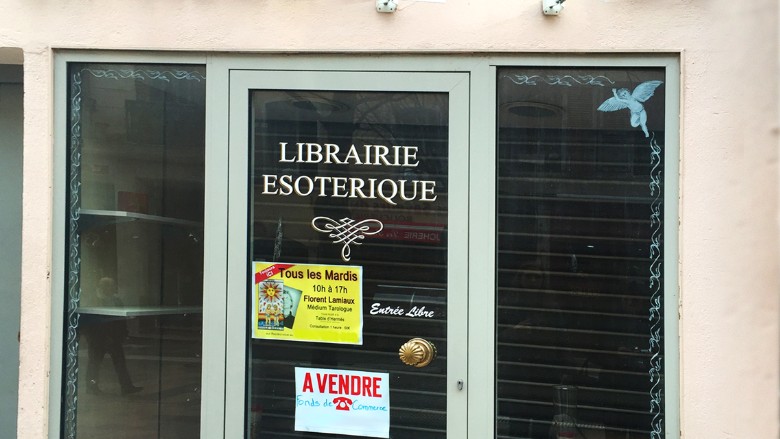
And to our surprise, he suggested we meet in person.
He told us to come to Le Chantilly, a cafe near his bookshop, the day before we were scheduled to leave France.
We didn't believe he was actually going to meet with us until we saw him walking over to our table with a woman who turned out to be his daughter. While he was skeptical of our motives at first, the conversation ended up lasting for more than an hour. And it could have gone much longer if we hadn't gotten kicked out by the barista when the café closed.
What he told us was a tale of a woman who made a deal with the devil.
He said that for many years his mother lived a normal life, first as the owner of an industrial cleaning business specializing in pools and saunas, and then as the proprietor of several clothing stores. It was in these stores that she first gave astrological consultations to friends.
He also explained that her psychic name was not an alias as we had suspected. Rather Duval was the name she took from her second marriage.
He said that there is no question his mother is a real psychic, and that she started out intent on helping others -- even working with police to find missing people.
But this all came to an end when she sold the rights to her name to Swiss businessmen more than 20 years ago, he said. At first, the business sold astrology charts, he recalled. But as the men behind the operation got greedier, the business model changed and the mass mailings in her name began.
He claimed his mother was very upset about the letters, but there was nothing she could do. When we asked why she has defended the letters in the past, he said she had signed contracts preventing her from disparaging the business in any way.
These psychics want your money
(We later heard from an "astropsychologist" named Dr. Turi who told us he became trapped in a very similar deal after signing a contract like this with a Canadian marketing company. He says he was horrified by the letters sent out in his name and that he received only a few hundred dollars in royalties. Unlike the story Duval's son told us though, Turi says he was able to get out after two years when he refused to sign any more contracts. A former official from the marketing company says that the deal ended when the two parties couldn't reach an agreement on financial compensation, among other terms. But Turi says the letters damaged his reputation -- with many people thinking he was a scammer.)
The contracts Duval signed were like something out of The Godfather movies, Palfroy told us. He claimed there would be dire consequences -- both legally and financially -- if she ever tried to get out. This might be one reason she refused to talk to us.
He said these contracts also required her to make the media appearances we had seen in other countries. "She had to go to Russia and Japan to show people that Maria Duval exists, that it's not just a name. There's a physical person," he said in French.
The contracts banned her from using the name Maria Duval for her own work, he insisted. As a result, he said the royalties and payments she received were what she had to live on.
Elderly, broke and homeless: The victims of a $200 million psychic scam
He acknowledged that she received a lot of money at first (though he wouldn't say how much, and may not even know himself), but that as the rights to her name passed through so many new hands, the payments slowed. These days, he doesn't think she receives any royalties.
He said that he is very sad about what has happened and that he hates seeing the way his mother's name has been used.
"It's terrible. But differentiate the name from the person," he said.
And he was adamant that the businessmen behind the scheme have made far more money than his mother.
But he was so worried he could get his mother into hot water, he refused to name the scheme's ringleaders. Plus, the business has changed hands so many times, that he said at this point his mother's name has become a runaway train that will continue on in infamy.
A victim herself?
We left the meeting in a daze.
As we boarded our flight back home, we had a new question on our minds: Has the woman at the center of this scam become a victim of it herself?
Her son's story would explain why even employees of the companies sending out the letters claimed to have only seen glimpses of her. It would explain why the letters were sent in languages Duval has never spoken before (according to her son). It would explain why she has become so elusive and isolated, hiding out in the home she's owned for decades. And most importantly, it would explain how an elderly psychic could be at the center of one of the world's longest-running scams.
The whole situation would also be terribly ironic. Many of the people we spoke to while in France were insistent that Duval herself is now extremely sick and old -- just like the millions of victims the scam has preyed on over the years.
This could even be the real reason she wouldn't meet with us -- that she was so sick that she was unable to properly defend herself.
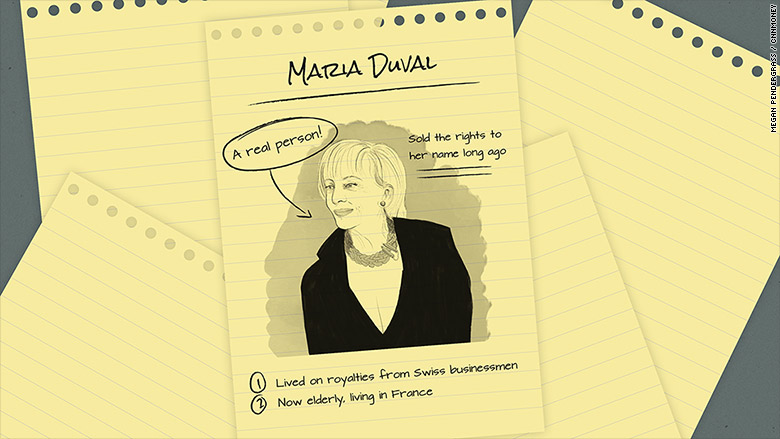
But how do we know that Duval is really the innocent victim her family says she is? Is there still a chance that she's actually been an eager participant in the scheme all along, preying off other peoples' grief to fund a luxurious retirement (including impromptu vacations to Rome)?
There's no way to know for sure.
But what we are confident about is, contrary to what many investigators around the globe suspected, Maria Duval is a living, breathing woman. And she really was known around France for her psychic gifts.
It's her name that has become a multimillion dollar work of fiction.
And it is this name that could live on forever -- or for as long as people are getting rich from it.